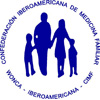The experience of medical education in Cajazeiras-PB
Resumo
Introduction: Political for creation of medical schools are reality in the interior of Brazil. The medical school of the Federal University of Campina Grande, in Cajazeiras, is a result of these actions. The challenges of the process of consolidation relate primarily to the weakened health system. Students, community and social movements are protagonists in this context.
Objective: Report an experience of students in these seven years of medical school UFCG-Cajazeiras, emphasizing the use of alternative fields of practice. Also, stressing the proposal stage-rural and partnerships with rural social movements.
Methodology or experience description: Knowing the lack of a university hospital able to create demand for practical activities in the disciplines of clinical medicine, basic health units has been an alternate on the practice field. Students and teachers seek to occupy these spaces starting from a screening of specific health cases existent in community, conducting managing the care and positively contributing to the quality of community health and clinical experience of students. During the rural-stage this proposal contributes positively to the dynamics of basic health units, improving the provision of services. Thus, the links between the rural community and the university are built the perspective of health promotion.
Results: In the reported period there were advances. Health indicators have evolved, the example of the number of medical professionals, 47 in 2007 and 96 in 2012 (Ministry of Health). Was created the residency in family and community medicine in 8 of the 18 basic health units in the region. Teaching practices have been redirected within the primary care. The health of the family is the structural axis of practices ranging from attendance in basic health units, monitoring of families in the community and fulfillment rural-stage. On these practices, students experience the reality of small towns in the region in its assistive and social context.
Conclusions or Hypothesis: The experience reveals how the social determinants of health influence the reality of the region, imposing itself as a challenge to medical education. The inclusion of characters engaged in the construction of health as a right, seeks to change that reality. Improve the health in Sertão Paraibano is possible, establish physicians and educate students committed to the health of this population.
Palavras-chave
Texto completo:
PDF (English)Apontamentos
- Não há apontamentos.
Este periódico é de responsabilidade das associações:
Apoio institucional:







